
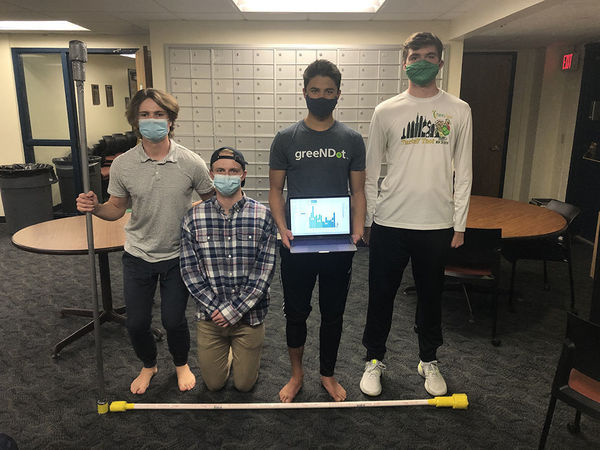
For most students, Saturdays are a time to take a break from the school week. But at the end of March, 61 undergraduates learned to apply the skills from their classes at DataFest in a fun and engaging way.
DataFest is a collaborative data analysis competition sponsored by the American Statistical Association. It took place in a new, virtual format because of coronavirus restrictions this year, but it still gave students an immersive learning experience.
At this year’s DataFest, 16 teams of 2-5 students received an enormous data set. Over the next two days, they had to figure out how to answer questions about that data set and communicate those insights to a panel of judges.
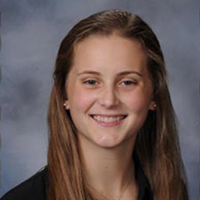
“You just get a hunk of data and you have to sculpt something from it,” explained competitor Julia Gately, a senior economics major with a minor in computing and digital technology. “The point of it is giving an almost overwhelming amount of data [with] thousands of data points...and being able to fine tune and really hone in on a specific area and come up with some visualizations from that.”
Usually, DataFest takes place in one large classroom, where students collaborate with their teams, receive feedback from volunteer mentors, and enjoy some food. In this year’s new virtual format, though, students received information through the communication platform Slack. Victoria Woodard, assistant teaching professor in the Department of Applied and Computational Mathematics and Statistics (ACMS) and Notre Dame DataFest organizer, regularly updated the website with answers to their questions.
Gately, who also participated in an in-person DataFest in 2019, praised the competitions’s ability to ensure all the teams had a fair and fun experience, despite the new pandemic circumstances. “I think that it lends itself a little bit to a virtual format, just because you can do the work from anywhere. All you’re missing from the in-person is the interactions with the people who are there to help you, and they did a really good job of ensuring that we still had access to that,“ she said.
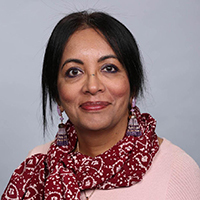
Sunela Thomas, a professional in the technology, compliance, and security industries and participant in the Notre Dame ACMS masters program, worked as a judge and mentor in this year’s DataFest. As a mentor, she checked in on students to provide them with feedback, encouragement, and guidance through Slack. As a judge, she evaluated the presentations but also gave further guidance on how students could improve their projects.
Volunteers as well as students can benefit from participating in DataFest. “I can say that [in] judging these kinds of competitions, I get insights that I never would have thought of,” Thomas said. “Knowing that these students have that talent,...you know what to look for when you have an opportunity to hire people.”
On the other side of the hiring process, sophomore ACMS and business analytics major William Murray said that DataFest provided an opportunity for self-evaluation and career discernment. “By the end of it, you’re able to gauge where you actually are with your real, applicable data analysis skills. It’s one thing in class to do your homework and to show up for your exams, but I feel like it’s totally another thing to adapt to a new [and] much more practical situation,” Murray said.
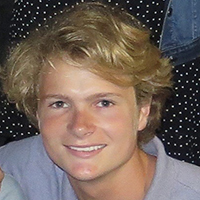
As a sophomore, Murray has less data analysis experience than some of the other, older teams. So he and his group had to find creative ways to approach the data and cross-apply skills.
“[I learned] just how to adapt, because this data set at the time needed a lot of statistical methods that we hadn’t really covered yet. So I had to branch out into stuff I was learning in other classes, too, which ended up being our greatest success,” he said.
Murray’s team’s approach was rewarded. They won the Best Visualization prize by using software he studied in another course.
In addition to specific data science techniques, Thomas stressed that DataFest fosters a sense of teamwork necessary for students’ future careers. “You develop your soft skills of interacting with people,” she said. “Because in today’s job force, collaboration is key, anywhere you go...and learning how to be part of a group is essential.’
Murray and his teammate, sophomore ACMS and economics major Matthew Zilligen, emphasized that this collaboration made DataFest a lot of fun, in addition to a valuable academic experience. They hung out all day in their dorm’s basement, analyzing data, joking around, and completing the competition’s side challenges. Fellow group members and friends also included mathematics and mechanical engineering majors, who brought unique insights to their project.
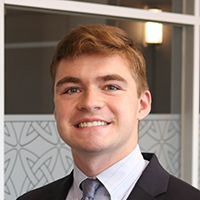
As Zilligen explained, “It definitely is beneficial for your team to have a wide range of different majors, minors, and backgrounds, because I think a lot of people can fit their roles in[to] DataFest.... There’s a place for you if you’re a super advanced computer science major or just a basic stats student, or any major who’s interested in numbers and data and just wants to learn something.”
At DataFest, the practical implications of data analysis also became particularly apparent to Zilligen and his teammates. “The majority of datasets you get, you can definitely draw serious, real-life conclusions, and that can make a significant impact on real-world problems,” he said.
DataFest Award Winners:
Best Insight: Team DataPest (Luke Dolan, Gavin Dooley, Ryan Elkins, William Kim and Zhipu Zhao)
Best Visualization: Team Fratres (Will Murray, Nathan Shemwell, Kevin Weiss and Matthew Zilligen)
Best Use of External Data: Team Spinning Windows (Patrick Delaney, Hannah Ferdynus and Peter Jezusek)
Originally published by at science.nd.edu on May 17, 2021.